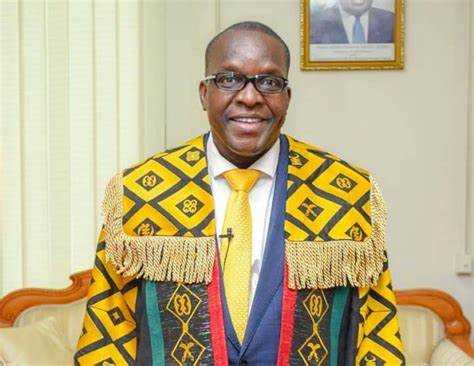The nomination of seven Justices of the Court of Appeal to the Supreme Court by President John Dramani Mahama marks a significant step in shaping the future of Ghana’s highest judicial body. This move, anchored in Article 144(2) of the 1992 Constitution, underscores the crucial role of the judiciary in upholding the rule of law and interpreting the constitution. The nominees, Justice Sir Dennis Dominic Adjei, Justice Gbiel Simon Suurbaareh, Justice Senyo Dzamefe, Justice Kweku Tawiah Ackaah-Boafo, Justice Philip Bright Mensah, Justice Janapare Bartels-Kodwo, and Justice Hafisata Amaleboba, bring a wealth of experience and diverse legal perspectives to the table. Their potential elevation to the Supreme Court holds the promise of influencing the interpretation of laws and shaping legal precedents for years to come. Speaker of Parliament Alban Bagbin’s formal referral of these nominations to the Appointments Committee initiates a crucial stage in the appointment process, ensuring parliamentary scrutiny and public engagement.
The Appointments Committee plays a pivotal role in ensuring the integrity and competence of individuals appointed to high office. Tasked with thoroughly vetting the nominees, the committee will delve into their professional backgrounds, judicial records, and overall suitability for the Supreme Court. This rigorous process includes reviewing their qualifications, assessing their judicial temperament, and scrutinizing their past decisions to gauge their adherence to legal principles and constitutional values. The committee’s deliberations will also consider the nominees’ understanding of complex legal issues, their ability to analyze legal arguments, and their capacity to contribute to the development of jurisprudence in Ghana. This multifaceted evaluation is designed to ensure that individuals appointed to the Supreme Court possess the necessary intellectual rigor, ethical standards, and commitment to justice required of the highest judicial authority.
The vetting process undertaken by the Appointments Committee is not merely a procedural formality; it is a critical component of Ghana’s democratic framework. It provides a platform for public scrutiny and allows for a transparent assessment of the nominees’ suitability. This process allows for public input, enabling citizens to voice their opinions and contribute to the decision-making process. The committee’s findings, once compiled, will be presented to the full Parliament for a final decision, further reinforcing the principle of checks and balances inherent in Ghana’s governance structure. This collaborative approach ensures that appointments to the Supreme Court are not made in isolation but are subject to robust scrutiny and debate.
The potential impact of these appointments on Ghana’s legal landscape is substantial. The Supreme Court, as the final arbiter of legal disputes, plays a crucial role in shaping the country’s legal framework and influencing the interpretation of laws. The addition of these seven justices will undoubtedly bring new perspectives and potentially shift the balance of opinions within the court. Their individual judicial philosophies and approaches to legal interpretation will contribute to the evolution of Ghanaian jurisprudence, potentially impacting areas such as constitutional law, human rights, commercial law, and criminal justice. The diversity of their backgrounds and experiences could also enrich the court’s deliberations, leading to more nuanced and well-rounded decisions.
The nomination of these seven justices also presents an opportunity to strengthen the Supreme Court’s institutional capacity and enhance its ability to address the complex legal challenges facing Ghana. With a larger bench, the court can potentially manage its caseload more efficiently, reduce delays, and ensure timely access to justice for all citizens. The infusion of new legal minds can also contribute to the development of innovative legal solutions and foster greater consistency in judicial pronouncements. Ultimately, a strengthened Supreme Court is essential for upholding the rule of law, protecting fundamental rights, and promoting a just and equitable society.
Beyond their individual contributions, the collective impact of these appointments will shape the future trajectory of the Supreme Court and its role in shaping Ghana’s legal landscape. Their decisions will have far-reaching consequences, impacting various aspects of Ghanaian society and influencing the interpretation of laws for generations to come. The careful selection and appointment of justices to the Supreme Court is therefore not merely a matter of filling vacancies; it is a pivotal moment that holds the potential to shape the course of justice and the rule of law in Ghana. The responsibility vested in the Appointments Committee and Parliament as a whole is immense, underscoring the importance of a thorough and transparent vetting process to ensure the appointment of justices who embody the highest standards of integrity, competence, and commitment to justice.


